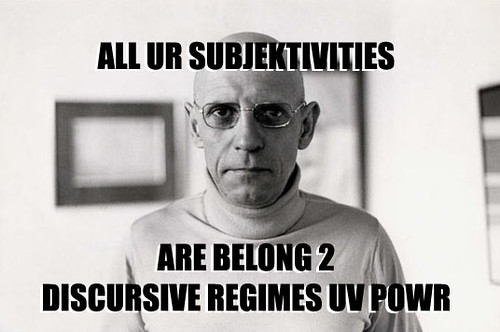
I have now taught a course on computer hacking 3 times and will do so again next year. I think it is also time to develop a new course that overlaps some with the hacker course but goes in a slightly different territory and I think THIS is what I am inspired to teach…
The Rude Boys of Technology: From Phreakers to Griefers (and everything in between)
Or maybe it should be:
The Rude Boyzzzzzzzzzzzzz of Tech: From Phreakers to Griefers (and everything in between)
Syllabus coming soon!
update: here and on facebook, a people noted the problematic use of rude boys. It is gender specific and indeed there are of griefers who are not boys or men but girls, women, and transgender folk too. I picked Rude Boys though as it references one of my favorite icons, the Jamaican Rude Boy.
The connection is also not just incidental. I have written a long time ago about how smack talking among geeks and smack talking among Carribeanites has a few formal similarities and would love to explore that further.
Perhaps I will change to reflect something more gender neutral or make explicit my reference and of course explore the politics of gender among these shadowy characters 
Next semester I am teaching one (yay one) course and it is a graduate course on digital media. This is the description I have so far and I will post the tentative syllabus in the next few week.
Mondays: 4:55 – 7:05 pm, E58.2130-001.
Computers, especially in their networked dimension, have sparked a series of ethical, political, and social debates that often revolve around a series of stark and connected dualities: control and freedom; pleasure and exploitation; creativity and constraint. In this course we will approach topics in digital media via an historical angle that squarely addresses these dualities. To this end, we will often cross-cut readings on similar topics and material whose conclusion about the nature of computing will often vary considerably. The goal, however, is not to determine the correct or right side of these dualities but have students come away with a firm understanding of the following: 1) the history of computing and networking in light of the ways the authors as well as technologists/inventors construct or understand these dualities; 2) the various sources—technological, social, and political—that may shape or drive any of these elements; 3) unpack the political and social relationships, if any, between them and the stakes involved in how these authors represent the nature of computing and networking.
The course primarily concentrates on computers and networks and is roughly chronological, starting with the first digital computers and ending with our digital present. Particular topics we address are: cybernetics and liberalism; networks and the cold war; personal computers and online communities; hackers, the free software movement and intellectual property; labor, development, and computers; peer-to-peer knowledge production; computer gaming; and counter-globalization and computer networking.
![]()



